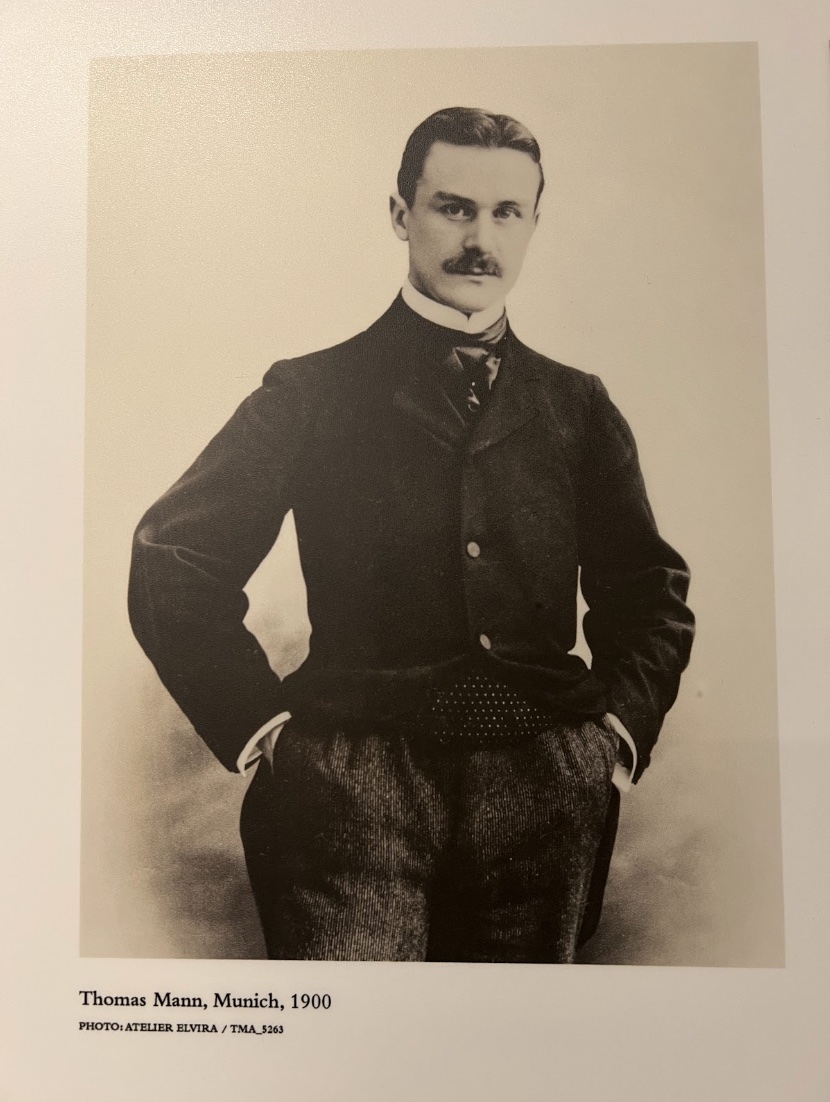
If you haven’t noticed, there’s something new on Main Library’s first floor: a series of large panels, screens and maps celebrating writer and philosopher Thomas Mann’s contributions to democratic thought.
“Thomas Mann: Democracy Will Win,” located between the library’s circulation desk and periodicals section, came to Northwestern from the Thomas Mann House, the philosopher’s Los Angeles former residence, now a popular cultural site. The display commemorates Mann’s post-Nobel Prize tour across the US, exploring the evolution of Mann’s viewpoints on democracy and the rise of fascism in 1930s Europe. The exhibit uses both multimedia and secondary sources to illuminate the philosopher’s thinking and work throughout his career.
The installation is set to travel the United States. It has already been displayed in Munich. NU Professor Peter Fenves said he was contacted by the Goethe-Institut Chicago to find a way to bring the exhibit to Chicago, and it arrived at NU on Jan. 30, 2023.
“I instantly said that it should be brought here to Northwestern.” Fenves said.
According to Fenves, the exhibit’s stop at NU is especially meaningful. Mann originally planned to visit Evanston – the first stop on his original speaking tour – in 1938, but his speaking engagement moved from the Technological Institute to the Auditorium Theater in Chicago due to high de-Mann-d. The event reportedly included “a Northwestern acapella group who continued to sing afterwards on the streets of downtown Chicago.”

However, the installation’s journey to NU proved nearly un-Mann-agable. Fenves called the ordering and organizing process needed for all of the pieces to get to Evanston a bureaucratic “nightmare.” Previously, the German government would have stepped in to financially support and organize an exhibition like this one at a German cultural center, but the war in Ukraine has diverted funding.
“In the last year, the funding for these institutions has been dramatically cut,” Fenves said. “The funds have been redistributed towards Ukrainian or refugees and other efforts involving Ukrainian culture, rightfully so.”
Fenves received multiple monitors from the Thomas Mann House that were “profoundly unstable” and would not properly attach to their stands. Some of the screens also had trouble displaying videos. Ultimately, he and a few librarian workers solved the issues on their own and succeeded in putting the exhibit together before it opened to the public.
Still, Fenves stressed the importance of the information on the panels and Mann’s relevance to the present day.
“I think the quotations you see in the opening frame and the final frames are food for thought,” Fenves said. “They will give students individualized ways of thinking to themselves how the moment of the late 30s, with the rise of fascism, is related to what's happening today.”
When Weinberg third year Bella Gibb visited the exhibit, she made her own connection between Thomas Mann’s thinking and the present political moment.
“It was a Thomas Mann quote, and he goes, ‘Not America first, but democracy first and human dignity first are the slogans which will really lead America to first place in the world,’” Gibb said. “I liked that little America first Trump jab, but it was so subtle and tastefully done.”
She also appreciated how the display brought other voices into the fold, especially how it highlighted the role Thomas Mann’s wife Katia Mann played in his development as a believer in democracy. She said seeing Mann's ideological evolution helped her to humanize him.
According to Clare Roccaforte, the director marketing & communication at Northwestern , this is the first time the library has set up an exhibit provided by another institution and the first time it has used this specific space for a display.
“We wanted a location that had high traffic, but there were also requirements that came with the exhibits,” Roccaforte said. “They required a certain amount of square footage.”
When the panels depart Main Library in mid-March, Fenves plans to send them north to St. Paul, Minnesota, or east to the University of Notre Dame. Despite no clear plans in place, he hopes to continue bringing German culture and history to NU.
“Our eyes are open and we have further eyes from the perspective of the staff of the library to see if we can continue to produce and house these kinds of events,” Fenves said.